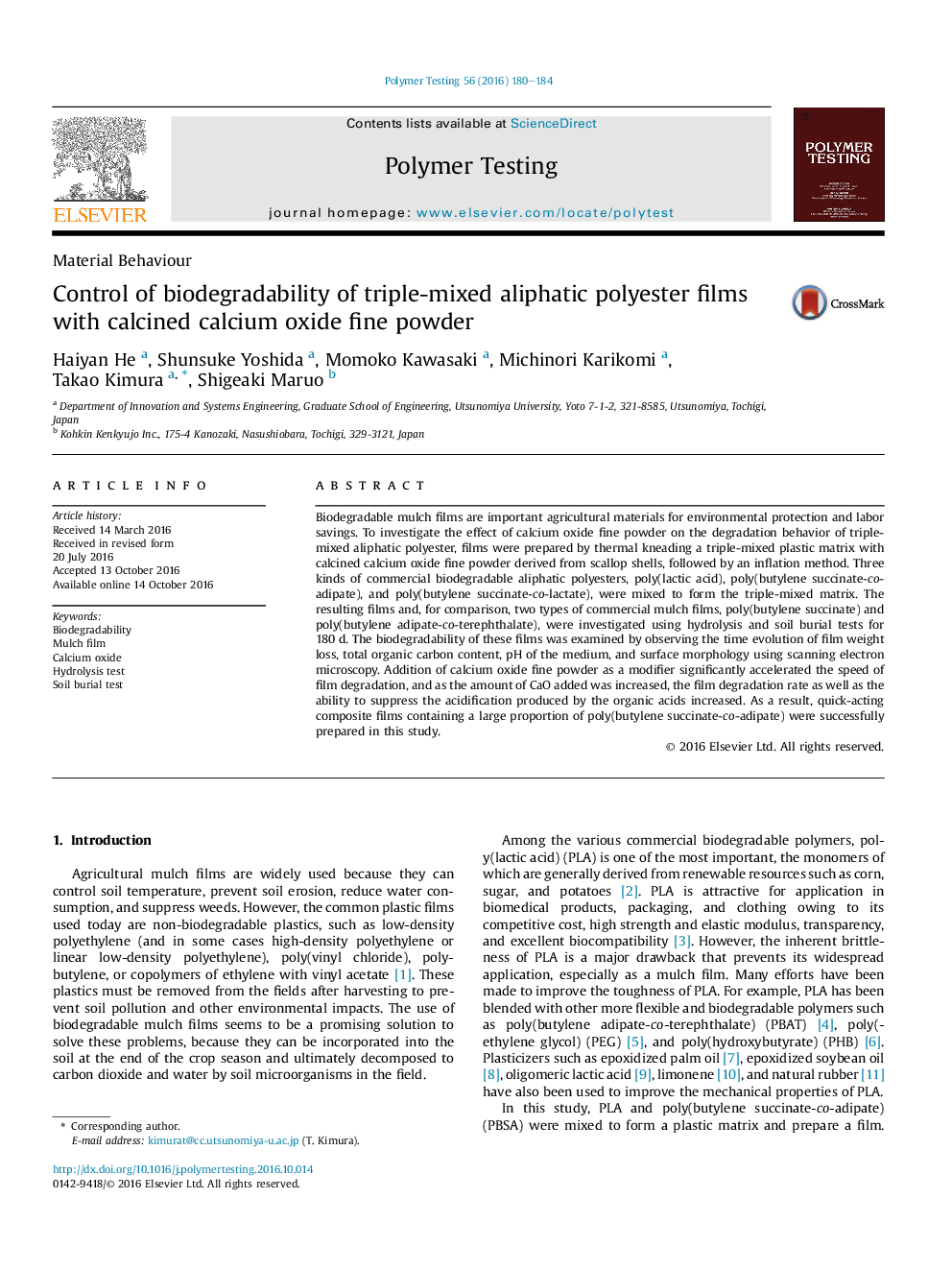| Article ID | Journal | Published Year | Pages | File Type |
|---|---|---|---|---|
| 5205594 | Polymer Testing | 2016 | 5 Pages |
Abstract
Biodegradable mulch films are important agricultural materials for environmental protection and labor savings. To investigate the effect of calcium oxide fine powder on the degradation behavior of triple-mixed aliphatic polyester, films were prepared by thermal kneading a triple-mixed plastic matrix with calcined calcium oxide fine powder derived from scallop shells, followed by an inflation method. Three kinds of commercial biodegradable aliphatic polyesters, poly(lactic acid), poly(butylene succinate-co-adipate), and poly(butylene succinate-co-lactate), were mixed to form the triple-mixed matrix. The resulting films and, for comparison, two types of commercial mulch films, poly(butylene succinate) and poly(butylene adipate-co-terephthalate), were investigated using hydrolysis and soil burial tests for 180Â d. The biodegradability of these films was examined by observing the time evolution of film weight loss, total organic carbon content, pH of the medium, and surface morphology using scanning electron microscopy. Addition of calcium oxide fine powder as a modifier significantly accelerated the speed of film degradation, and as the amount of CaO added was increased, the film degradation rate as well as the ability to suppress the acidification produced by the organic acids increased. As a result, quick-acting composite films containing a large proportion of poly(butylene succinate-co-adipate) were successfully prepared in this study.
Related Topics
Physical Sciences and Engineering
Chemistry
Organic Chemistry
Authors
Haiyan He, Shunsuke Yoshida, Momoko Kawasaki, Michinori Karikomi, Takao Kimura, Shigeaki Maruo,
